JavaScript seems to be disabled in your browser. For the best experience on our site, be sure to turn on Javascript in your browser.
 Ordered before 13:30h, dispatch on the same working day!
Ordered before 13:30h, dispatch on the same working day!Choose your vehicle
Diesel particulate filter (DPF)
Soot filter, diesel particulate filter DPF or FAP? ... ... all one - a passive filter system for your diesel vehicle!
When burning diesel fuel, so-called soot particles form in the exhaust gas which, without a corresponding filter, can escape into the air and pollute it. In order to prevent this and to comply with the Euro standard for your vehicle, a suitable DPF (Diesel Particulate Filter) must be installed in your exhaust system.
In the automotive sector, such a filter is 99% a passive filter system that filters out soot particles from an exhaust gas stream and binds them in the filter material so that they can not pollute our air.
Since these filters are qualitatively different, a distinction is made between the two materials most commonly used for production: Silicon Carbide (SIC) and Corded Particulate Filters.
These filter elements (called monoliths) are made of ceramic, coated and are installed inside the purchased filter system. Therefore, they must be handled with care, as improper storage or handling may result in breakage of the ceramic filter material, rendering the particulate filter unusable.
Please do not throw or drop, and do not expose to shocks other than normal use.
The ConTra-Automotive GmbH is not liable in any of the damage cases specified here. Furthermore, it is not obliged to provide for compensation or compensation in case of loss of use of the vehicle.
These filters are exposed during vehicle operation of a constant load of soot particles, which is why they can not absorb more particles after a certain time. So in your engine control it says at some point "maximum load condition reached".
The filter is equipped with sensors - pressure sensors and temperature sensors, which return the full load to the engine control via the measured back pressure in the filter. After the signal "maximum load state reached" has been displayed, a self-cleaning process is triggered when the vehicle is fully operational / operational, in order to reduce the load state to a normal level. This ensures exhaust gas cleaning that complies with the specifications.
The filter can not be defective after delivery to the customer and in the uninstalled state, unless it has been physically damaged.
How does such a DPF filter work and what is its job?
Imagine the filter like the coffee filter in your home coffee machine. His job is to filter hot water with coffee powder. The result is a coffee without coffee powder particles. So it's a passive filter that works only when something is poured in to filter it - in this case, hot water with coffee particles.
In a diesel particulate filter, it is hot air with soot particles that are produced in the exhaust air from the combustion of diesel fuel. If you do not damage the coffee filter before use it works flawlessly and delivers the desired result - coffee in liquid form, without coffee powder residues in the cup.
If you repeatedly rinse the coffee filter out after use and re-use it, there will always be some coffee in the filter, after repeated use it would slowly clog up and you would have to use a new coffee filter. So it is with the diesel particulate filter.
The self-cleaning process on the DPF is a bit more complicated, as you can not easily swap the filter inside, but the result is the same. Also, this filter can only be cleaned again and again until it is full at some point.
And what is the result?
Here again as an example of coffee filters: If this filter can no longer filter because the pores are added and the liquid coffee no longer seep through him, the coffee filter overflows.
What about your diesel vehicle and the associated soot particle filter?
At this point, the condition is reached that the filter must be replaced because the regeneration intervals occur at ever shorter intervals and the software in your engine control indicates that the DPF needs to be replaced, then the corresponding warning lamp lights up in your vehicle.
Here is often the argument stated that the car still drove well, so the exchange is postponed.
That happens, but your exhaust system can only work if the exhaust gases can flow unhindered and are not prevented by a clogged diesel particulate filter. The pressure has to go somewhere - and possibly expensive and important components in the vehicle will break. Often, the exhaust system leaks and / or the turbo gets damaged, if one exists, and then the repair becomes more expensive and annoying.
The turbo is the exhaust gas back pressure next because, because of its functioning as an exhaust gas turbocharger, a turbopropeller (also has a sealing effect) is located in the exhaust stream and the temperatures and pressures is directly exposed. If this is damaged, unburned oil can enter the exhaust gas flow and clog and damage the filter, as well as all other filters in your exhaust system. You will notice this only slightly if the turbos are slightly damaged because your vehicle will now consume a bit more oil.
We strongly recommend that ALL repairs and installations be made by a specialist workshop trained in the use and installation of diesel particulate filters.
Following are some possibilities and errors as well as the reasons for them listed.
(This is just an excerpt, these are the most common cases.)
1. The new diesel particulate filter is immediately after installation again defective or full and even the mechanic says that there is a defect?
This is probably not the case, because there are the following explanations:
a. The pressure pipes on the diesel particulate filter were not changed or cleaned and the soot residues in these thin pipes return false pressures to the pressure sensor.
b.It was not kept to the specifications of the vehicle manufacturer! For example, an unsuccessful reset of the load state after replacement of this result may entail. A specialist workshop is trained on it.
c. The turbo is defective due to the defect or late replacement and has contaminated the new filter with oil that has leaked.
d. The sensors have not been replaced, so a pressure sensor is defective and returns the wrong pressure.
e.The DPF has been damaged or improperly handled / installed during transport or after delivery to the customer / workshop?
...
There are many more reasons why you need to swap and / or make mistakes when swapping that will cause the new particulate filter to malfunction after a swap. We deliver only qualitatively tested, homologated, marketable goods to our customers!
We have a great deal of experience with manufacturers, customers and workshops, more than 5000 replacement diesel particulate filters and can assure that ultimately, in almost all cases, the new DPF was not the reason why an error has repeatedly occurred.
Therefore, you should always have the exchange carried out by a certified specialist, otherwise it can quickly become expensive.
The entire offered goods will be checked by us personally for damage after arrival, as well as before shipment to our customers. Whether the filter itself is damaged, can be checked by simply shaking the article immediately and partially determined by looking.
For these reasons, we ask you as a customer:
If you already notice on delivery that loose parts are included in the package and / or there is a gross, obvious damage to the packaging, then you should immediately complain the goods / the package to the shipping service provider on site, taking pictures and refusing to accept.
In any case contact us immediately - we are happy to help and always find a solution so that you can use your vehicle as usual.
-
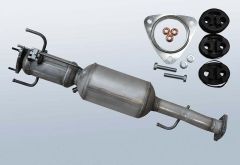 Diesel Particulate Filter ALFA ROMEO 147 1.9 JTD CF4 (BZ_DS)€330.00Incl. 19% VAT , excl. Shipping Cost
Diesel Particulate Filter ALFA ROMEO 147 1.9 JTD CF4 (BZ_DS)€330.00Incl. 19% VAT , excl. Shipping Cost -
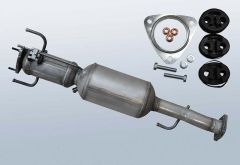 Diesel Particulate Filter ALFA ROMEO 147 1.9 JTD CF4 (BZ_DS)€330.00Incl. 19% VAT , excl. Shipping Cost
Diesel Particulate Filter ALFA ROMEO 147 1.9 JTD CF4 (BZ_DS)€330.00Incl. 19% VAT , excl. Shipping Cost -
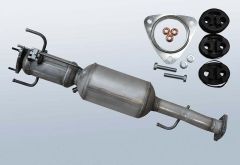 Diesel Particulate Filter ALFA ROMEO 147 1.9 JTD CF4 (BZ_DS)€330.00Incl. 19% VAT , excl. Shipping Cost
Diesel Particulate Filter ALFA ROMEO 147 1.9 JTD CF4 (BZ_DS)€330.00Incl. 19% VAT , excl. Shipping Cost -
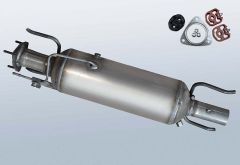 Diesel Particulate Filter ALFA ROMEO 159 1.9 JTDM CF4 (X3)€320.00Incl. 19% VAT , excl. Shipping Cost
Diesel Particulate Filter ALFA ROMEO 159 1.9 JTDM CF4 (X3)€320.00Incl. 19% VAT , excl. Shipping Cost -
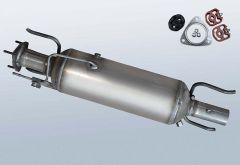 Diesel Particulate Filter ALFA ROMEO 159 1.9 JTDM CF4 (X3)€320.00Incl. 19% VAT , excl. Shipping Cost
Diesel Particulate Filter ALFA ROMEO 159 1.9 JTDM CF4 (X3)€320.00Incl. 19% VAT , excl. Shipping Cost -
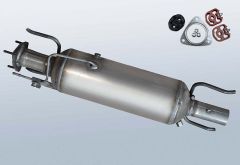 Diesel Particulate Filter ALFA ROMEO 159 1.9 JTDM CF4 (X3)€320.00Incl. 19% VAT , excl. Shipping Cost
Diesel Particulate Filter ALFA ROMEO 159 1.9 JTDM CF4 (X3)€320.00Incl. 19% VAT , excl. Shipping Cost -
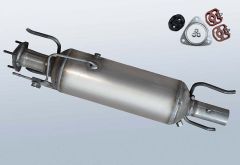 Diesel Particulate Filter ALFA ROMEO 159 1.9 JTDM CF4 (X3)€320.00Incl. 19% VAT , excl. Shipping Cost
Diesel Particulate Filter ALFA ROMEO 159 1.9 JTDM CF4 (X3)€320.00Incl. 19% VAT , excl. Shipping Cost -
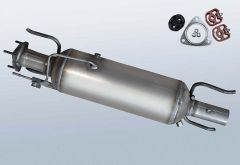 Diesel Particulate Filter ALFA ROMEO 159 1.9 JTDM CF4 (X3)€320.00Incl. 19% VAT , excl. Shipping Cost
Diesel Particulate Filter ALFA ROMEO 159 1.9 JTDM CF4 (X3)€320.00Incl. 19% VAT , excl. Shipping Cost -
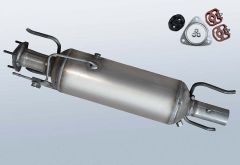 Diesel Particulate Filter ALFA ROMEO 159 1.9 JTDM CF4 (X3)€320.00Incl. 19% VAT , excl. Shipping Cost
Diesel Particulate Filter ALFA ROMEO 159 1.9 JTDM CF4 (X3)€320.00Incl. 19% VAT , excl. Shipping Cost -
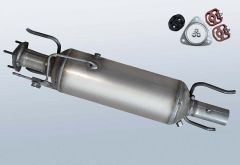 Diesel Particulate Filter ALFA ROMEO 159 1.9 JTDM CF4 (X3)€320.00Incl. 19% VAT , excl. Shipping Cost
Diesel Particulate Filter ALFA ROMEO 159 1.9 JTDM CF4 (X3)€320.00Incl. 19% VAT , excl. Shipping Cost








